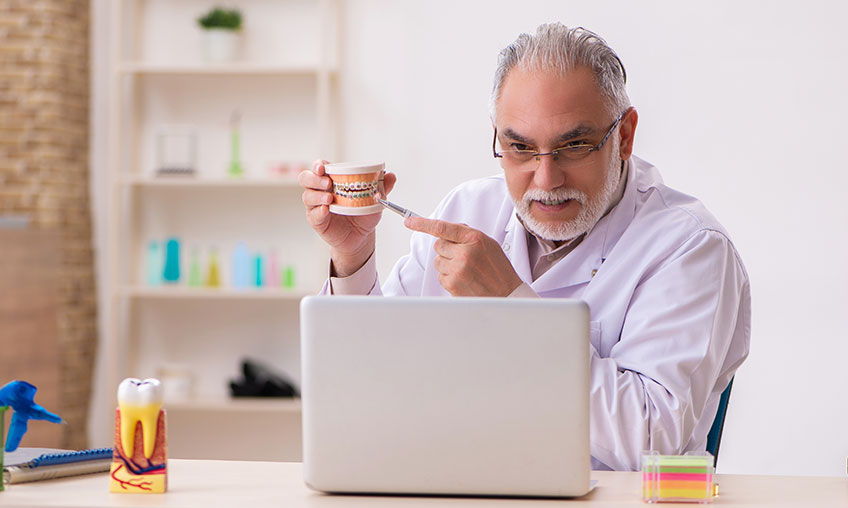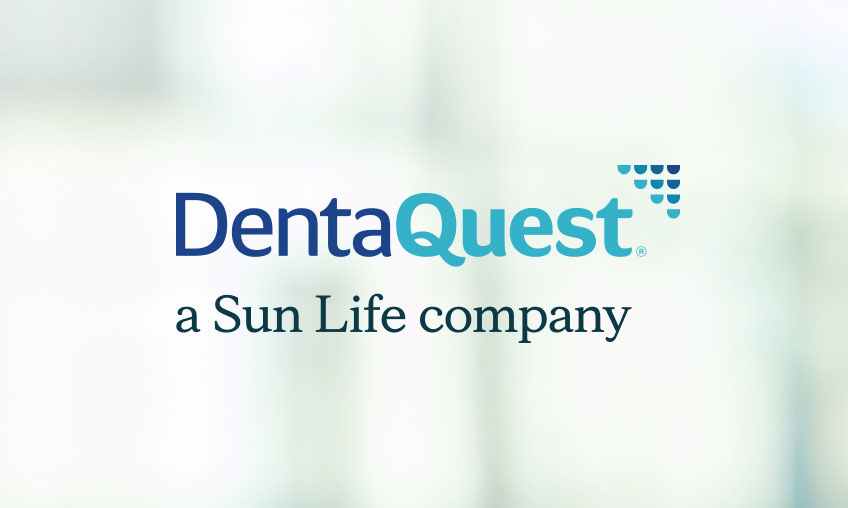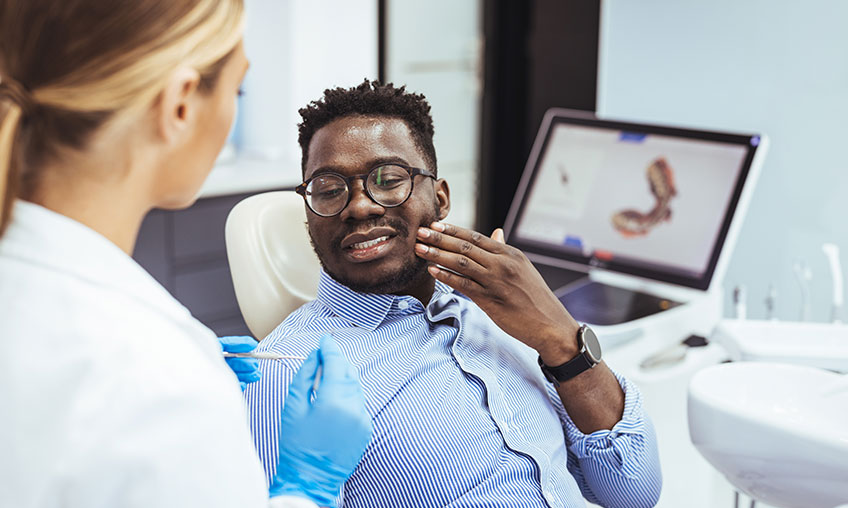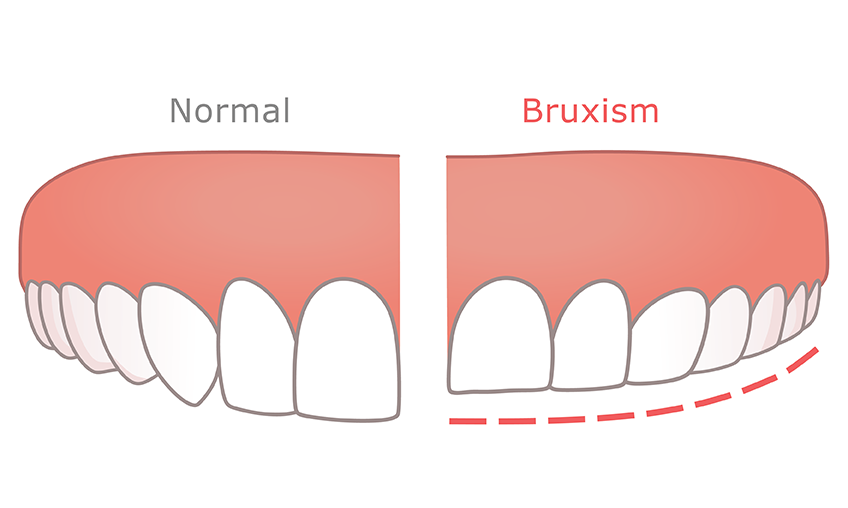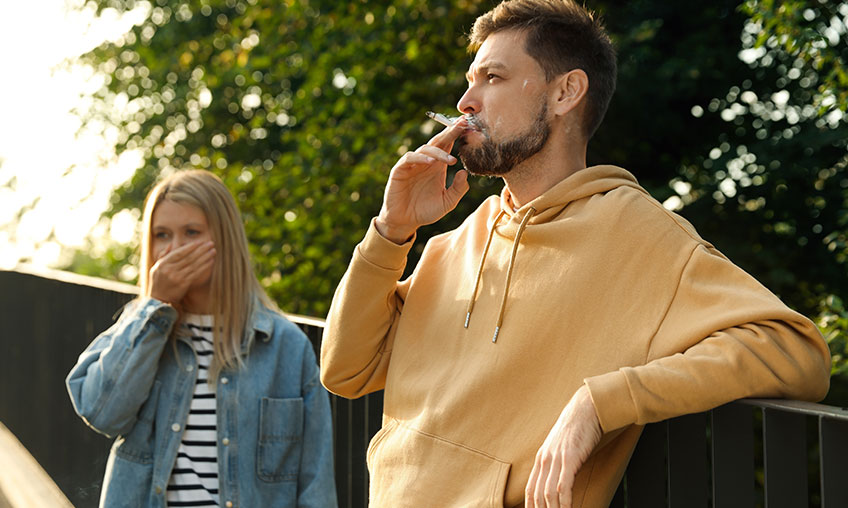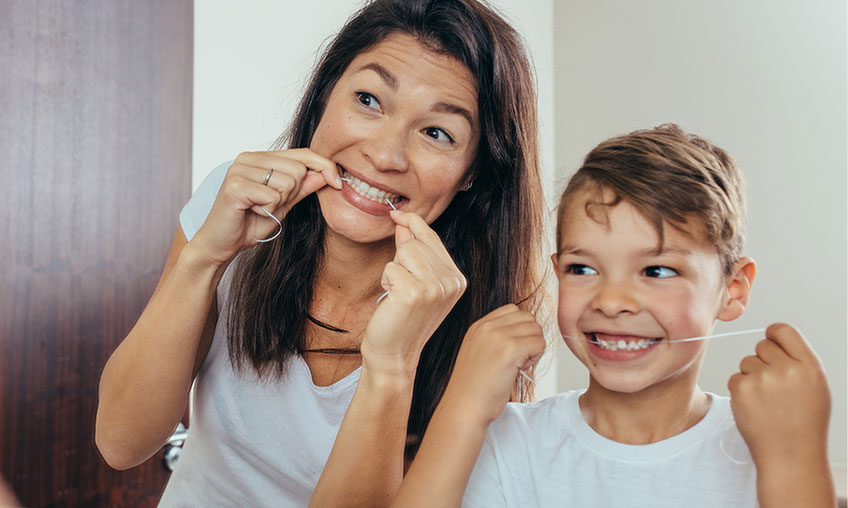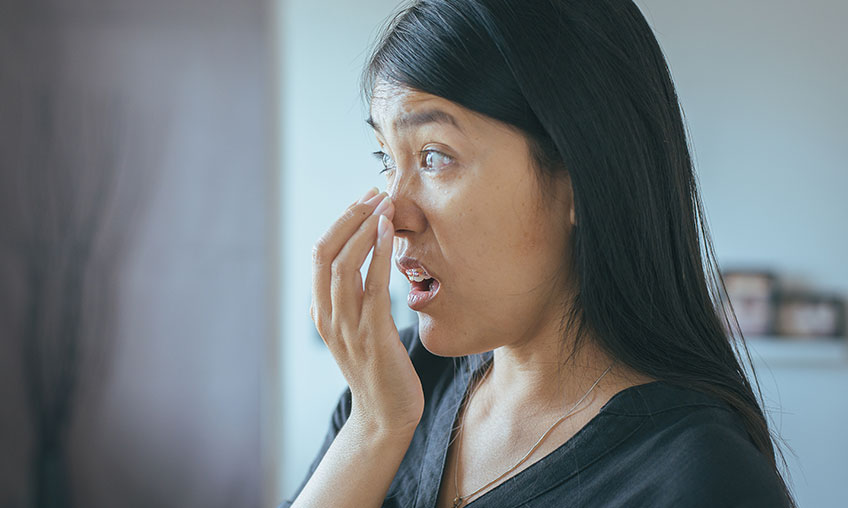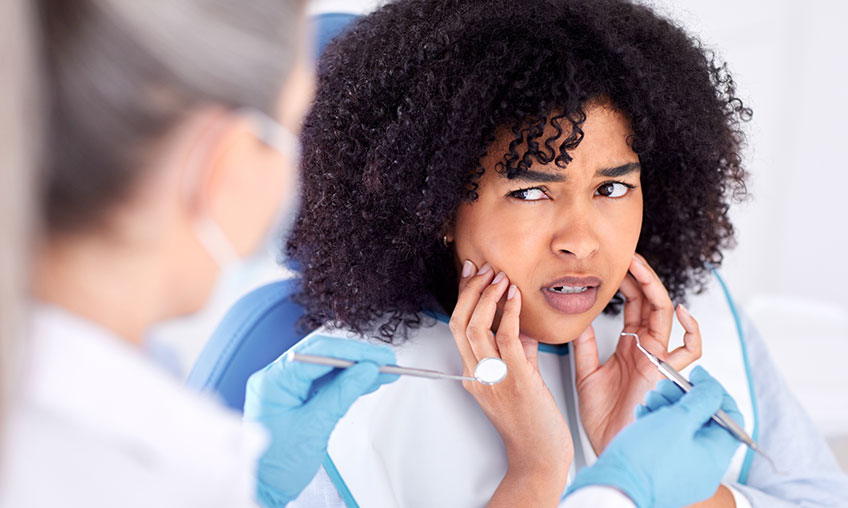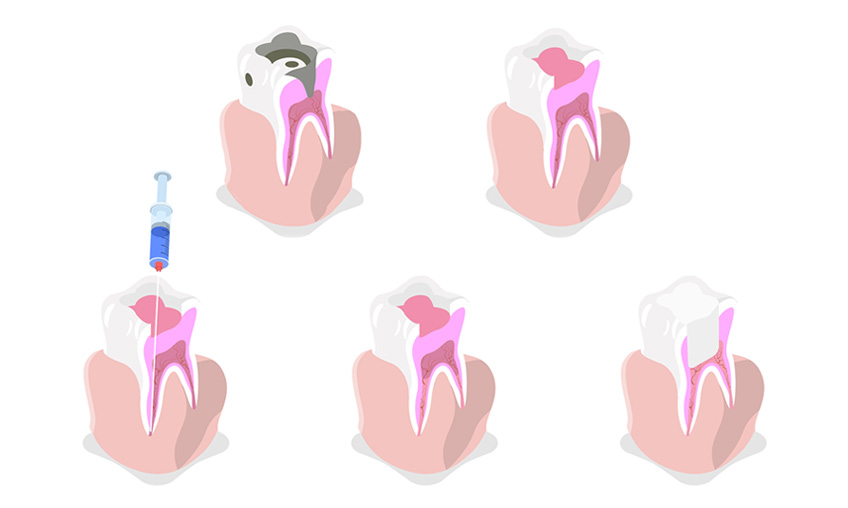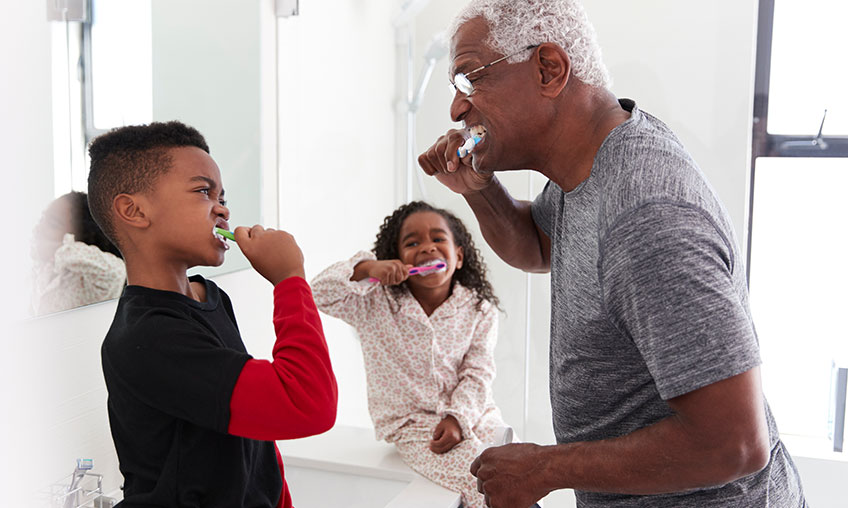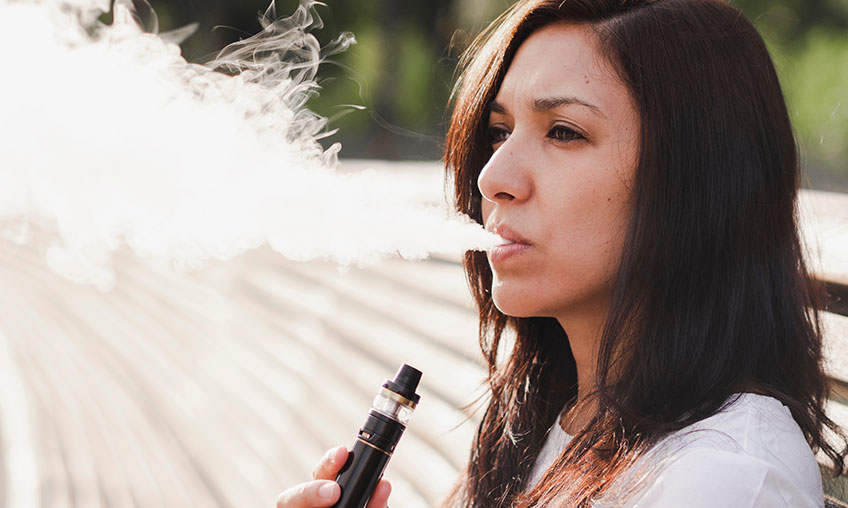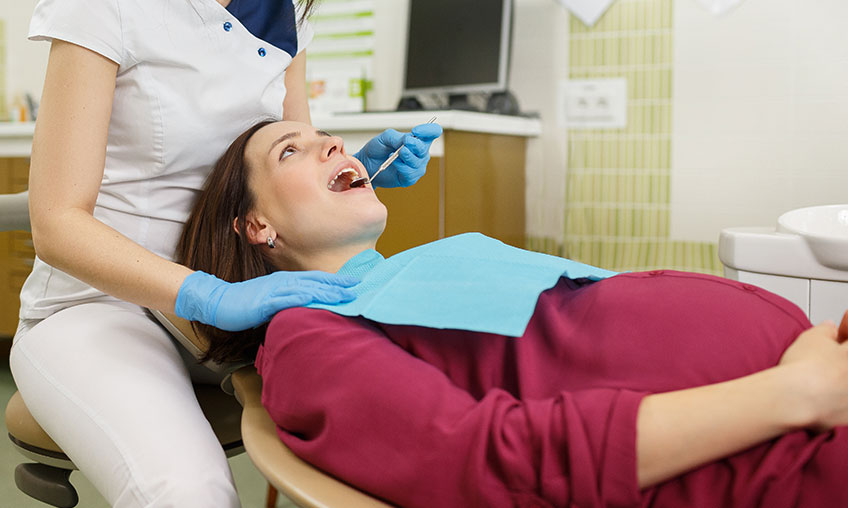
By Jandra Korb, DDS
Brushing your teeth is important for a healthy smile. These tips on how to brush your teeth will help you get the most out of your oral health habits:
- Choose a brush that is the right size (smaller is usually best) with soft bristles.
- A pea-sized amount of toothpaste with fluoride is all you need.
- Brush with light pressure. Brushing too hard can hurt your gums and enamel.
- Your toothbrush will only clean one or two teeth at a time. Move it around to clean each tooth. As you move to the next tooth, protect your gums by lifting your brush and shifting it over, rather than dragging it from tooth to tooth.
- Tilt the bristles at a 45-degree angle toward your teeth. Slide the tips of the brush under the gums.
- Jiggle the bristles gently to clean plaque under the gums.
- Brush all sides of your teeth - the outside, the tongue side and the chewing surfaces. Gently brush your tongue, too. The back of some toothbrushes has a special surface to clean your tongue, or you can use a separate tongue scraper.
- For front teeth, the front part of the brush should go over the teeth and gums. Tilt the brush and make several up and down strokes. Make sure to brush the inside surfaces, too.
- Brush after breakfast and before bedtime every day, for two minutes each time. If you want to go the extra mile, brush your teeth after lunch. It's best to wait 60 minutes after eating before you brush, says the American Dental Association (ADA).
- Get a new toothbrush every two to three months. Replace it sooner if the bristles spread out or look worn. Your dentist may offer a new toothbrush when you visit.
Also, remember to floss your teeth at least once per day. And if you like, finish with mouthwash. Mouthwash can reach where your toothbrush can’t. The ADA says that it can help prevent or control tooth decay and reduce plaque.
Mouthwash also helps to prevent or reduce gum disease, reduce how much tartar forms on your teeth and freshen breath. If your mouthwash contains fluoride for extra decay-fighting power, spit it out, but don’t rinse. For best results, use mouthwash without alcohol/ethanol unless your dentist advises you otherwise.
These tips work for most people. For special needs, please ask your dentist.
More Good Reasons to Brush Your Teeth
Brushing your teeth protects your teeth, gums and so much more. For example, good oral health habits help to support a healthy pregnancy. And dentists, physicians and scientists have linked total-body health with good oral health for years.
But on the other hand, poor oral health is linked to poor overall health. The scientific journal Nature points out connections with many serious illnesses. Those problems include five kinds of cancer, Type 2 diabetes, cardiovascular diseases, depression, diseases that attack the central nervous system, lung/breathing diseases, inflammatory bowel disease, ulcer-causing bacteria in the gut and obesity. Similar findings come from respected organizations such as the ADA, Harvard Medical School, Mayo Clinic, the New England Journal of Medicine and the U.S. Centers for Disease Control and Prevention (CDC).
As you can see, it's a good investment in your well-being to take a few minutes in the morning and at night to brush your teeth the right way. If you have questions about brushing your teeth, ask your oral healthcare provider. DentaQuest members can click here to connect with a dentist.
Jandra Korb, DDS, joined DentaQuest as dental director after spending more than two decades practicing general dentistry in Vinita, Oklahoma. She spends significant time volunteering within educational and dental realms, and most recently has been serving as a member of the Board of Health for Craig County, Oklahoma. Dr. Korb is a member of the SAID Policy and Legislative Committee as well as a Core Team member for the Native Oral Health Network. Dr. Korb earned her bachelor’s degree in nursing as well as her DDS at the University of Oklahoma Health Sciences Center.

PREVENTISTRY PULSE
The newsletter designed for anyone who wants to improve oral health for themselves, their families, customers or communities.
